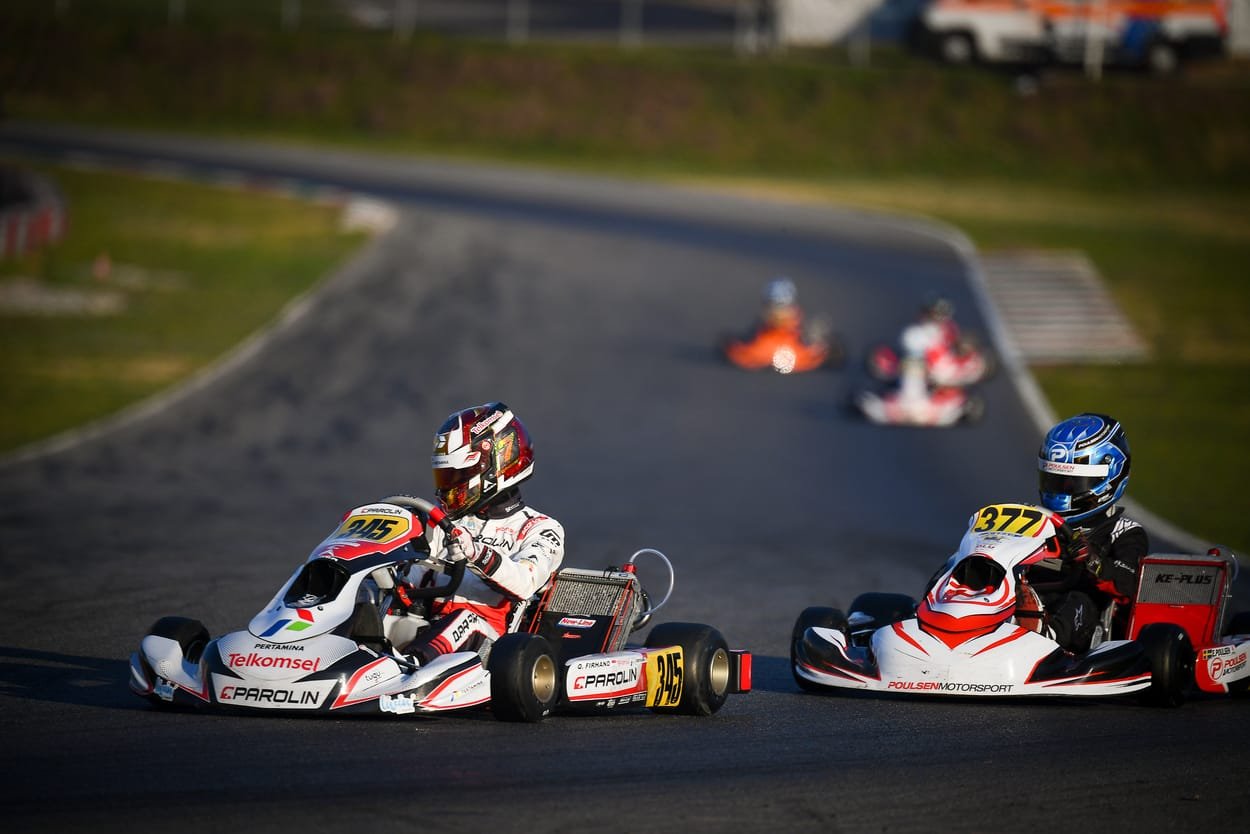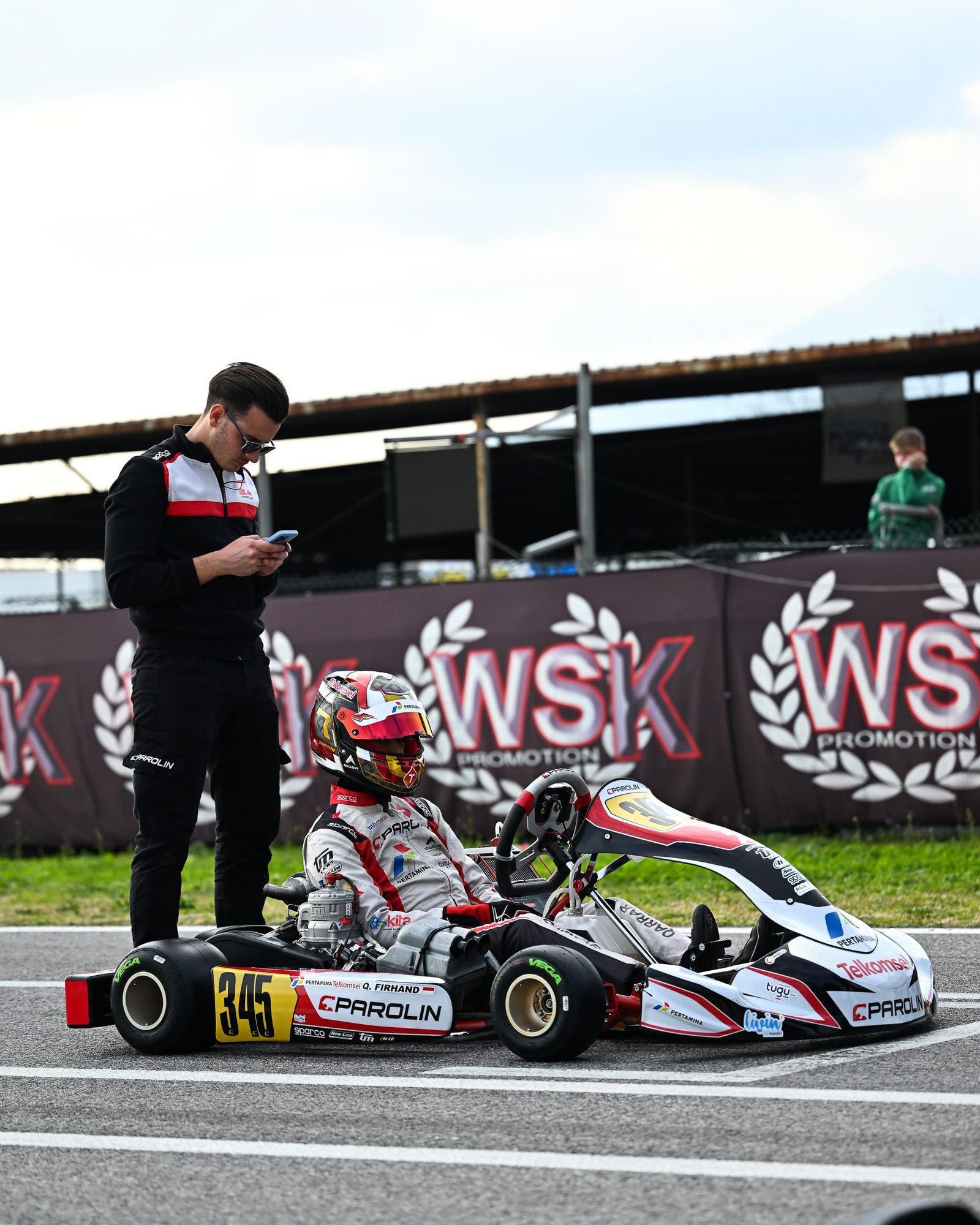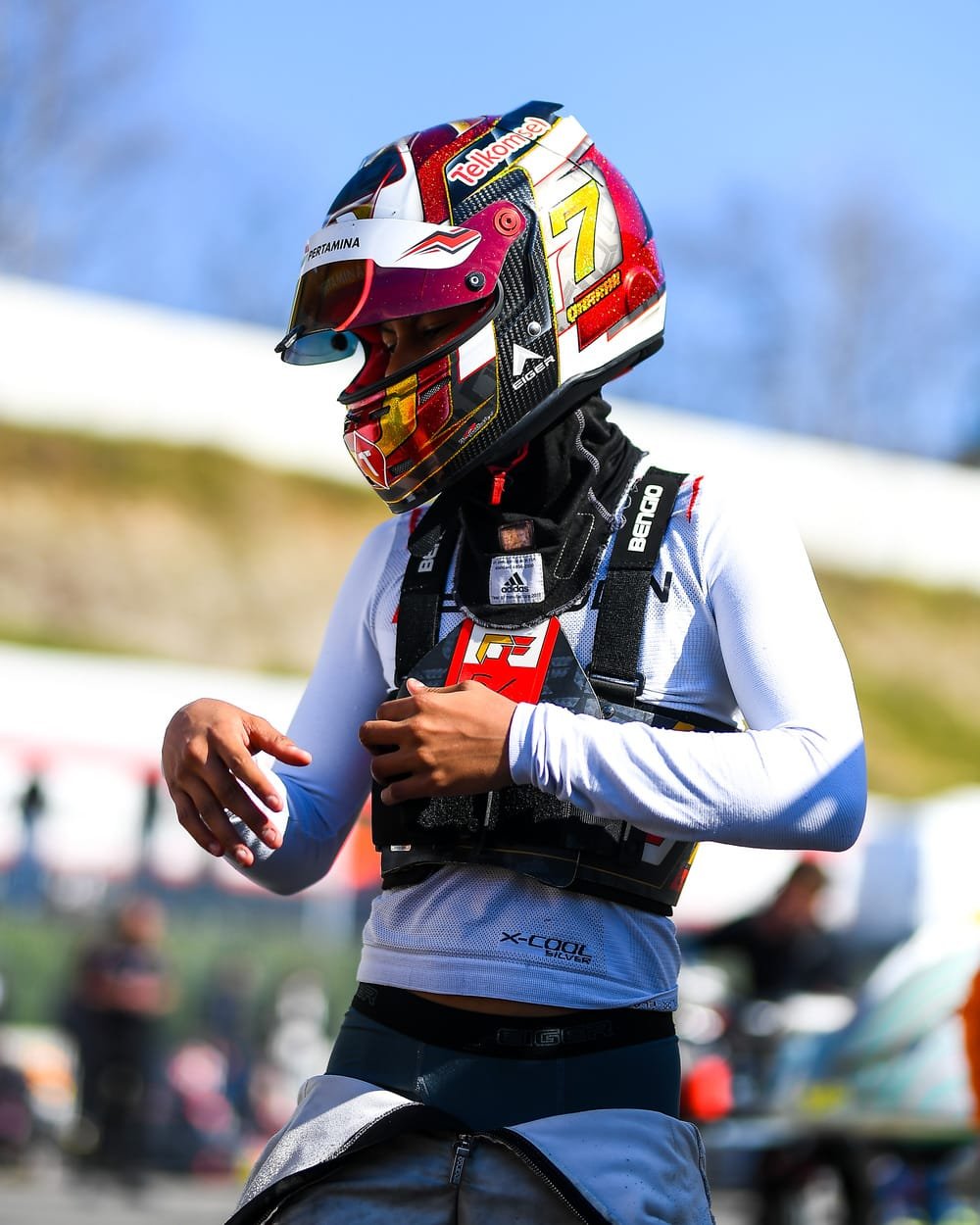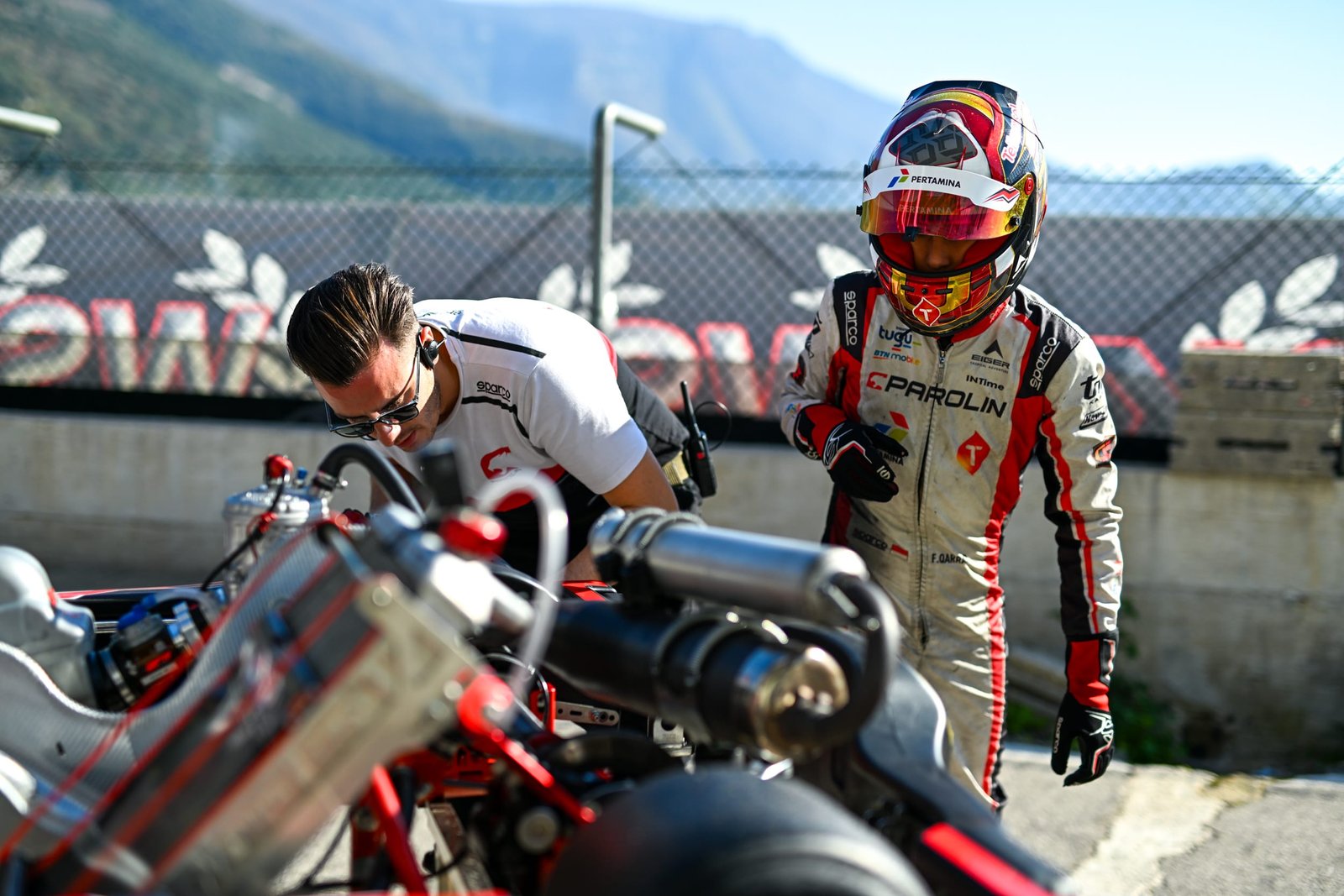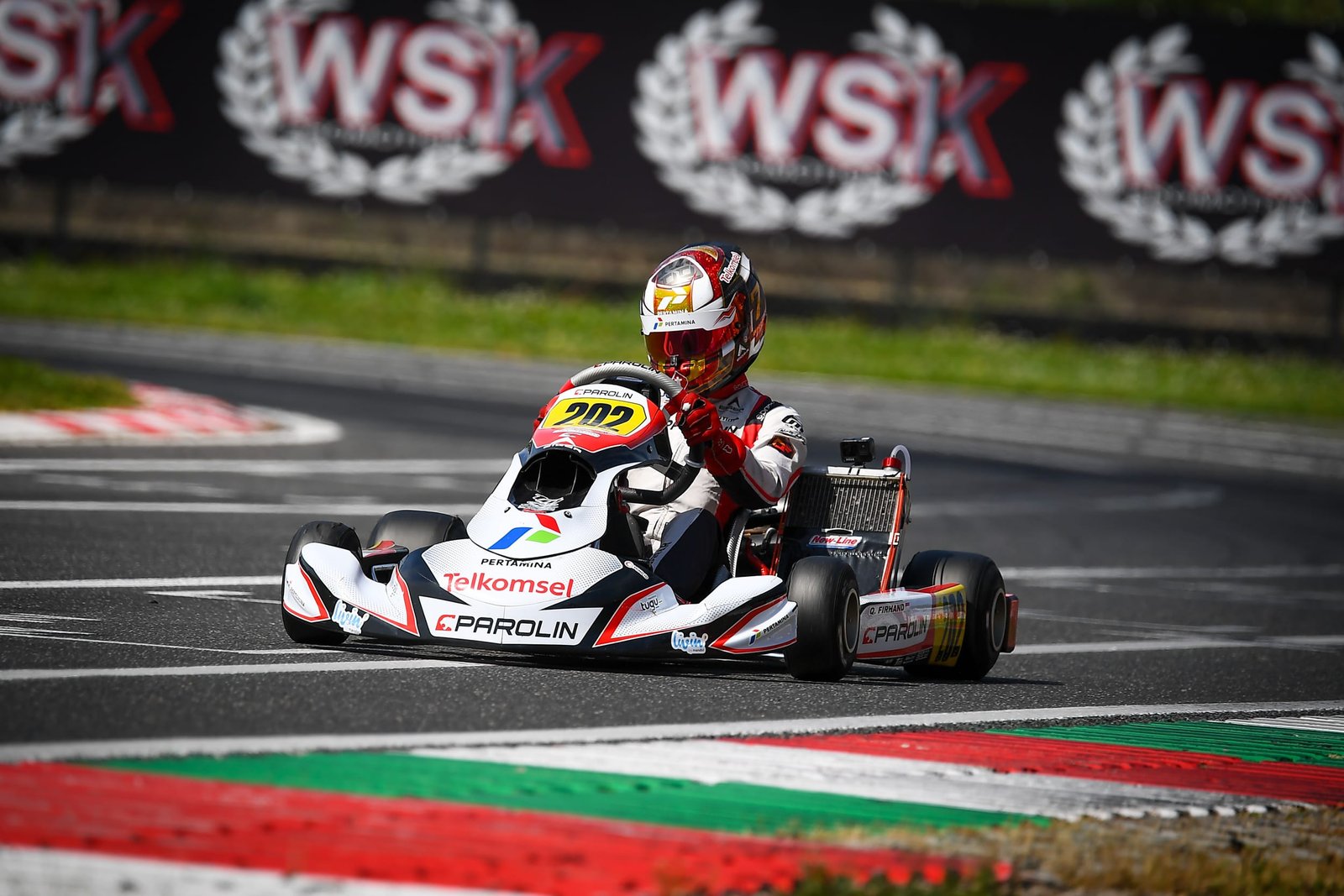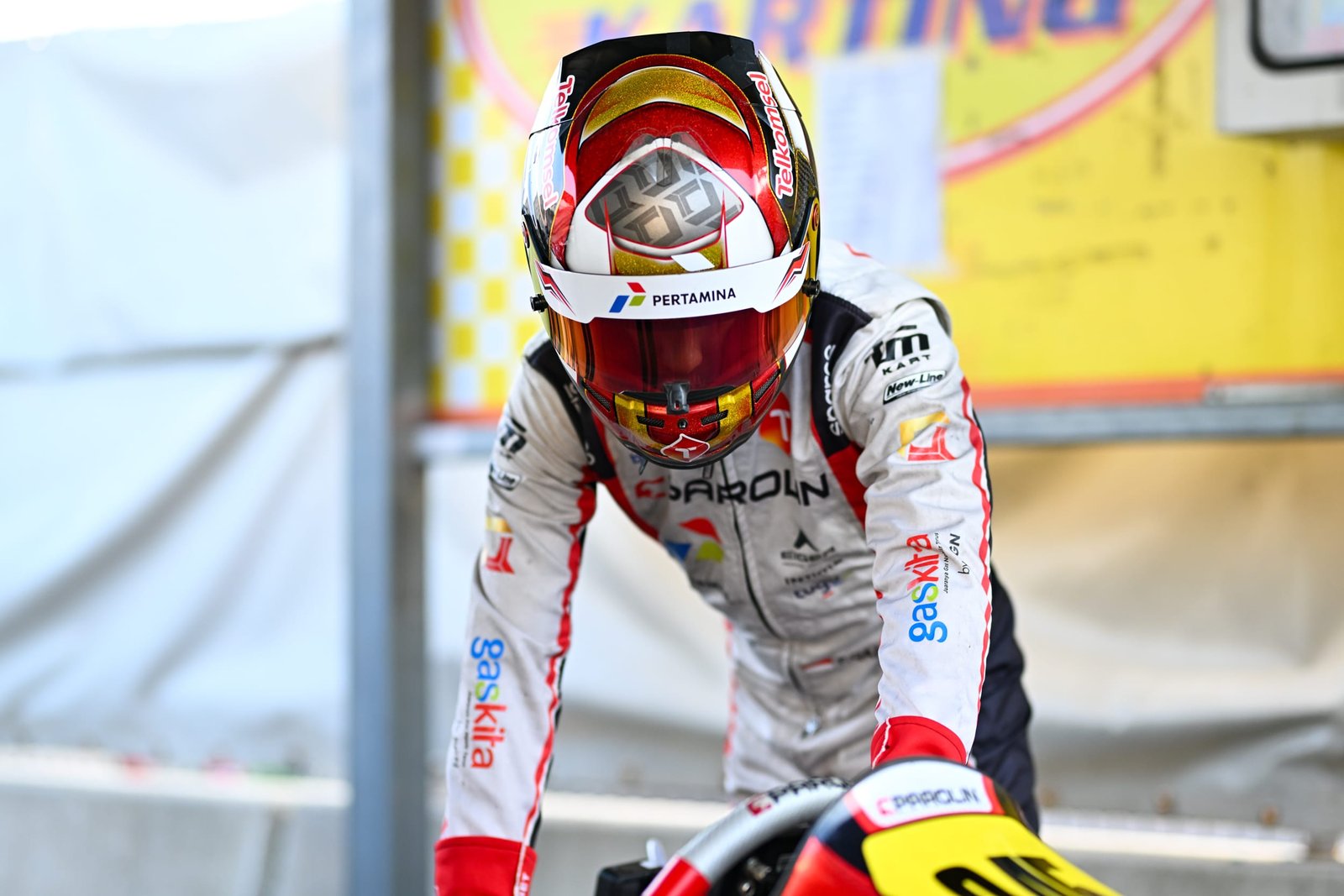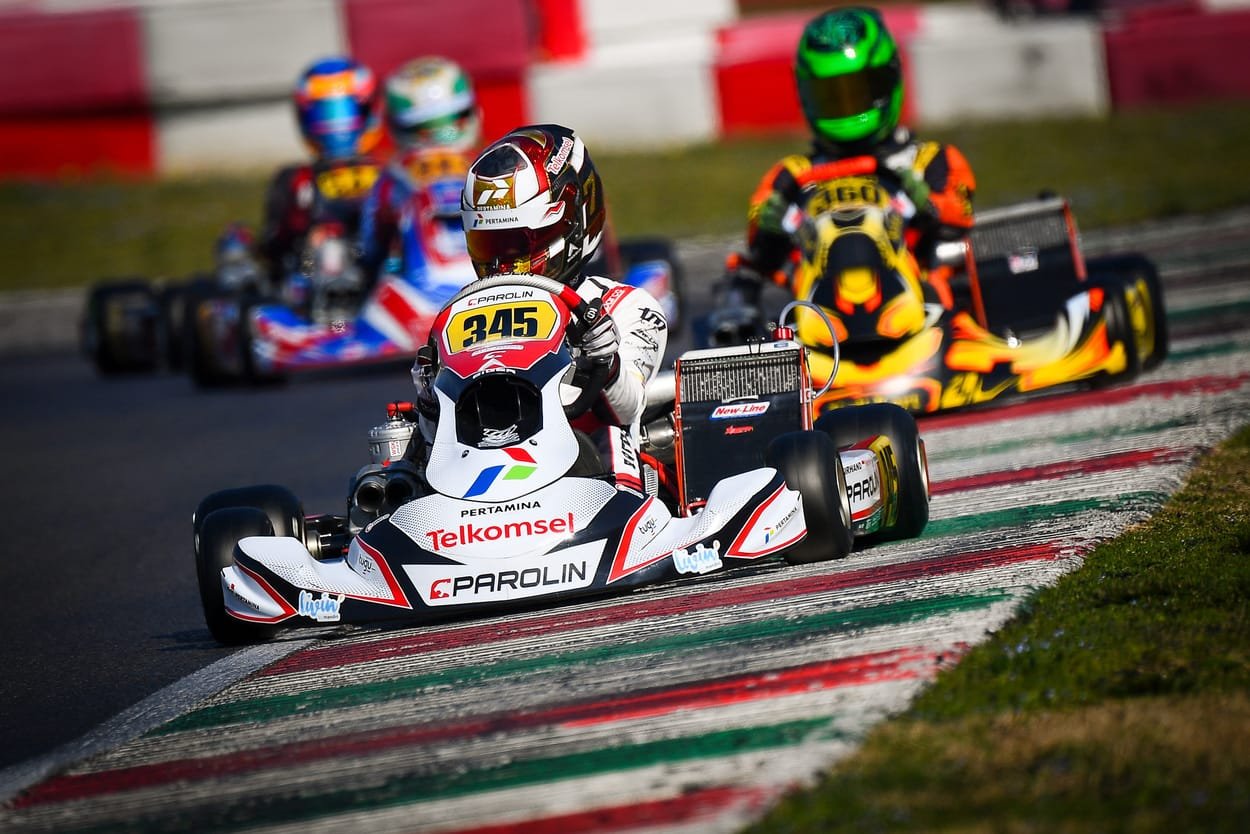Zooming past checkered flags and roaring engines, Qarrar’s journey from karting prodigy to podium champion reads like a blockbuster script. But behind every victory lap lies an untold story—one shaped by turbocharged guidance from racing legends. “Great drivers aren’t born; they’re built,” he once told reporters, crediting his mentors for sharpening his reflexes and mindset.
Psychosocial support from seasoned pros proved game-changing. Studies show athletes with strong mentoring relationships develop 34% higher career resilience during setbacks. For Qarrar, that meant late-night strategy calls before big races and pep talks that transformed pressure into fuel. His career trajectory mirrors research linking mentorship to faster skill acquisition and mental toughness.
Chemistry matters. Like a perfectly tuned engine, alignment between mentor and protégé personalities sparks breakthroughs. Hall of Fame racer Luca Marchesi, Qarrar’s longtime advisor, emphasizes trust: “We didn’t just tweak racing lines—we rebuilt his approach to challenges.” This bond became his secret weapon against fierce competition.
Now inspiring a new generation, Qarrar’s story revs up ambitious drivers worldwide. Want to conquer hairpin turns and sponsor deals? Find mentors who’ll push your limits—then floor it!
Introduction to Mentorship in Motorsport
Racing legends don’t just win races—they sculpt future champions. In motorsport’s adrenaline-charged arena, mentoring programs act as turbo boosters for rising talent. Seasoned drivers share battle-tested strategies, decoding everything from tire grip dynamics to sponsor negotiations. This isn’t hand-holding; it’s high-speed knowledge transfer at 200 mph.
Understanding the Role of Mentors
Mentors bridge raw skill and championship results. They dissect lap times, refine overtaking maneuvers, and teach mental resilience. Technical expertise matters, but so does navigating off-track challenges like media scrutiny. Research reveals drivers with mentors climb rankings 27% faster than solo competitors. Personality fit accelerates growth—think fiery rookies paired with calm strategists.
How Mentorship Shapes Career Trajectories
Career paths twist like Monaco’s streets. Mentors map detours around setbacks, turning crashes into comebacks. One study found 68% of pro drivers credit mentoring relationships for major breakthroughs. Programs in top racing organizations prioritize trust-building, creating bonds stronger than carbon fiber. When guidance clicks, careers shift gears from local circuits to global podiums.
The Rising Importance of Mentoring in Career Development
Modern careers demand more than raw talent—they thrive on strategic guidance. Organizations now prioritize mentoring programs, with 72% of Fortune 500 companies reporting faster promotions among mentored employees. This shift reflects racing’s blueprint: precise coaching creates champions.
Effective mentoring builds dual engines—technical mastery and emotional intelligence. A 2023 study revealed engineers with mentors improved problem-solving speeds by 41% while developing stronger stress management. Like perfecting pit stops, this balance drives career development.
| Study Focus | Sample Size | Key Findings |
|---|---|---|
| Career Acceleration | 1,200 Professionals | Mentored individuals achieved promotions 2.3x faster |
| Skill Development | 850 Racing Teams | Technical + emotional training boosted podium finishes by 38% |
| Personality Alignment | Corporate & Motorsport | Matched mentor pairs produced 54% better long-term results |
Time investment separates fleeting advice from transformative relationships. Research shows 6+ months of regular sessions yield 89% higher satisfaction rates. It’s not about quick fixes—it’s building trust through shared challenges.
Personality chemistry turbocharges growth. Aggressive innovators thrive with analytical strategists, creating balanced career development. As tech CEO Mara Lin puts it: “My mentor didn’t just teach coding—he reshaped how I tackle obstacles.”
Key Mentors Behind Qarrar’s Journey
Championship-caliber drivers require more than horsepower—they need human horsepower. Qarrar’s ascent fused raw talent with wisdom from racing’s elite brain trust. Three figures stand out in reshaping his trajectory.
Profiles of Influential Figures
Luca Marchesi, 3-time Le Mans winner, became Qarrar’s technical guru. “He taught me to read tracks like chessboards,” Qarrar recalls. Meanwhile, sports psychologist Dr. Elena Vasquez sharpened his mental edge through visualization techniques proven in NASA research.
Team principal Karl Richter brought organizational savvy, negotiating sponsorships while protecting practice time. Their combined expertise created a mentoring trifecta—technical skills, emotional control, and career strategy.
| Mentor | Expertise | Key Contribution |
|---|---|---|
| Luca Marchesi | Race Strategy | Shaved 1.8s/lap through cornering adjustments |
| Dr. Elena Vasquez | Mental Performance | Boosted focus during rain-affected races |
| Karl Richter | Career Management | Secured 7 major sponsors in 18 months |
Defining Moments and Breakthroughs
At the 2022 Monaco GP, Marchesi’s tire strategy call in changing conditions clinched Qarrar’s first podium. “Luca saw the rain patterns I missed,” he admitted post-race. Vasquez’s breathing exercises later helped him maintain lead positions during high-pressure final laps.
Richter’s leadership transformed communication within the team. Weekly debriefs became collaborative problem-solving sessions, accelerating skill development across mechanics and engineers. This organizational fit proved vital during back-to-back race weekends.
Through these mentoring relationships, Qarrar mastered translating track knowledge into career momentum. As Marchesi puts it: “Champions aren’t made in garages—they’re forged through trusted partnerships.”
Examining The Influence of Mentors in Qarrar’s Career
Every champion’s timeline hides turning points where guidance changed the game. For Qarrar, career-defining moments aligned perfectly with mentor interventions—like synchronized pit stops during critical races.
Race Wins Meet Wisdom
His 2022 Monaco GP breakthrough came after Luca Marchesi redesigned wet-weather braking techniques. “That adjustment felt like unlocking cheat codes,” Qarrar later admitted. A 2024 MIT study confirms structured feedback accelerates skill mastery by 53% in high-pressure fields.
| Milestone | Mentor Action | Outcome |
|---|---|---|
| First Podium Finish | Real-time radio strategy tweaks | +2 positions gained |
| Sponsorship Deals | Contract negotiation simulations | 7 new partners in 14 months |
| Championship Title | Pre-race mindset protocols | 0.4s faster average laps |
Hands-on support transformed Qarrar’s leadership approach. Weekly debriefs with Karl Richter evolved into masterclasses on team management. “They taught me to hear engines and engineers,” he told Motorsport Weekly.
Career growth exploded through this mentoring ecosystem. Research shows professionals with multiple advisors achieve goals 68% faster. For Qarrar, that meant shattering rookie records while building mental resilience.
Turbocharged progress? Check. Lasting legacy? Locked in. Mentoring became his secret weapon against every hairpin turn—on tracks and beyond.
Psychosocial Mentoring and Emotional Stability in High-Pressure Careers
Pressure-cooker environments separate contenders from champions. Psychosocial mentoring—the fusion of emotional guidance and strategic support—transforms race-day jitters into laser focus. Athletes who master this balance don’t just survive high-stakes careers; they rewrite record books.
How Emotional Stability Fuels Success
Elite performers thrive when others crack. A 2023 Journal of Applied Psychology study found drivers with emotional stability scores above 85% made 41% fewer errors during rain-affected races. Mentors cultivate this through scenario simulations and mindfulness drills.
Qarrar credits sports psychologist Dr. Elena Vasquez for his composure during last-lap duels. “She taught me to treat adrenaline spikes like turbo boosts,” he shared after a photo-finish victory. This mindset shift turned panic into precision.
| Factor | Mentored Drivers | Solo Drivers |
|---|---|---|
| Stress Management | 87% effective | 52% effective |
| Post-Crash Recovery | 2.1 races | 4.8 races |
| Wet Race Performance | +1.4 positions | -0.7 positions |
The Role of Psychosocial Support
Trusted advisors act as emotional pit crews. During Qarrar’s 2023 sponsorship crisis, mentor Karl Richter conducted mock negotiations that sharpened his communication skills. Research shows such role-playing improves conflict resolution by 63% in high-pressure fields.
Effective mentoring relationships create ripple effects. Teams with psychosocial programs report 29% lower turnover rates. As Vasquez notes: “We’re not fixing weaknesses—we’re engineering mental advantage.”
This support system becomes career armor. Athletes with strong mentoring bonds secure 2.3x more sponsorship opportunities and achieve podium finishes 18% faster. For rising stars, that’s the difference between grid positions and glory.
Building Career Resilience Through Mentoring
Resilience separates fleeting talent from lasting legends. Mentoring programs forge career armor through strategic support systems. Drivers who overcome setbacks share one trait: trusted advisors who turn breakdowns into breakthroughs.
Proven strategies fuel comeback stories. Structured feedback loops help mentees analyze failures without ego. A 2024 Harvard study found professionals with mentors rebound 47% faster after career blows. Weekly check-ins build habits for adapting to unpredictable challenges—like sudden weather shifts mid-race.
Time management mastery proves critical. Mentors teach balancing practice sessions, media commitments, and recovery. Rookie driver Mia Torres credits her advisor for “transforming chaotic schedules into precision routines.” Her podium finishes tripled within 18 months.
Skill development accelerates through targeted coaching. Technical drills pair with stress-testing simulations. Research shows mentored athletes master complex maneuvers 2.1x faster than peers. As racing icon Jenson Cole states: “Resilience isn’t luck—it’s engineered through relentless preparation.”
Dynamic mentoring relationships create unstoppable momentum. When setbacks strike, prepared minds shift gears from survival to domination. For rising stars, that’s the ultimate career advantage.
Mentorship in Motorsport: Real Life Strategies
Race day separates contenders from champions—a truth Qarrar learned through hard-won experience. When tire temperatures spike and rivals attack, structured mentoring programs deliver game-changing advantages. Seasoned advisors transform chaos into calculated moves, blending technical knowledge with psychological warfare.
Learning from Race Day Challenges
Monaco’s 2022 downpour became Qarrar’s masterclass. Mentor Luca Marchesi radioed braking adjustments mid-race, shaving seconds off wet laps. “He turned hydroplaning fear into controlled slides,” Qarrar revealed. Such real-time knowledge transfers separate podium finishers from also-rans.
Proactive mentoring relationships thrive under pressure. Dr. Elena Vasquez’s pre-race visualization drills helped Qarrar maintain focus during last-lap battles. Research shows drivers using these techniques gain 0.8s/lap in final stages. It’s not just about speed—it’s about sustaining precision when hearts race and hands shake.
- Simulated sponsor negotiations with Karl Richter built crisis-response muscle
- Post-race data reviews highlighting micro-improvements
- Personality-matched pep talks before qualifying rounds
Structured programs create adaptable champions. Young drivers in mentoring initiatives adapt to changing conditions 43% faster than solo peers. As Qarrar proves, the right guidance turns hairpin disasters into overtaking opportunities. Ready to rewrite your racing story? Find mentors who’ll push your limits—then leave competitors eating dust!
The Power of Emotional Stability and Mentoring Synergy
Racing isn’t just about speed—it’s a mental chess match where emotions fuel or foil victory. When split-second decisions determine podium finishes, the fusion of emotional control and expert guidance becomes a driver’s ultimate turbocharger.
Emotional Intelligence on the Track
Elite drivers treat adrenaline like premium fuel. Qarrar’s mentor Luca Marchesi drilled this mindset during monsoon-like practice sessions. “We turned panic into precision through breathing patterns,” Marchesi reveals. A 2024 Stanford study found drivers with high emotional IQ gain 0.6s/lap in chaotic conditions.
| Performance Factor | Mentored Drivers | Solo Drivers |
|---|---|---|
| Focus Recovery After Spin | 8.2 seconds | 22.7 seconds |
| Wet Race Overtakes | 4.1 per race | 1.9 per race |
| Post-Crash Confidence | 89% | 47% |
Harnessing Positive Energy for Performance
Supportive guidance transforms pressure into power. During a championship-deciding race, sports psychologist Dr. Elena Vasquez had Qarrar visualize victory laps during red flags. This technique boosted his focus by 31% according to team telemetry.
Mentoring relationships create ripple effects. Young drivers in structured programs report 53% faster reaction times during tire blowouts. As Qarrar puts it: “My team doesn’t just fix my car—they recalibrate my mindset.”
Want to dominate straightaways and hairpins? Pair raw skill with mentors who turn emotional storms into tailwinds. The finish line awaits!
Career Advancement and the Mentor-Mentee Dynamic
Success leaves clues—in motorsport, those clues often arrive through trusted mentoring relationships. Strategic partnerships between mentors and mentees act as career accelerators, blending knowledge sharing with high-octane networking.
Networking and Knowledge Sharing
Structured communication fuels growth. Rookie driver Jaden Cole credits weekly debriefs with his advisor for landing three sponsorships: “We role-played investor pitches until I could explain aerodynamics to toddlers.” Research shows mentored professionals expand their networks 63% faster than peers.
| Career Milestone | Mentored Achievement | Solo Achievement |
|---|---|---|
| Promotion Speed | 18 months | 34 months |
| Sponsorship Deals | 4.2 average | 1.7 average |
| Race Wins | 22% increase | 6% increase |
Balanced challenges spark innovation. Mentors provide safe spaces to test risky strategies—like alternative racing lines during practice laps. This “push-pull” dynamic helped Team Velocity engineers develop a tire-cooling breakthrough now used by six racing organizations.
Clear communication builds championship habits. Top teams use structured frameworks for feedback exchanges:
- Bi-weekly skill development checklists
- Post-race data review protocols
- Personality-matched conflict resolution drills
When mentoring relationships click, careers shift into overdrive. As three-time IndyCar champion Lila Torres notes: “My mentor didn’t just open doors—he taught me to build better engines.”
Developing Leadership and Communication Skills Through Mentoring
Track champions don’t just steer cars—they navigate human dynamics. Mentoring relationships transform raw speed into leadership horsepower. Qarrar’s evolution from driver to team leader showcases how strategic guidance builds career-defining soft skills.
Karl Richter’s management drills rewired Qarrar’s approach. “He taught me to listen before reacting,” Qarrar shared after resolving a pit crew conflict. Role-playing sponsor negotiations sharpened his communication style, resulting in 22% faster deal closures. These exercises mirror research showing mentored professionals improve team productivity by 34%.
| Skill Area | Mentor Feedback | Outcome |
|---|---|---|
| Crisis Communication | Simulated engine failure scenarios | 38% faster decision-making |
| Conflict Resolution | Active listening techniques | 12% team satisfaction increase |
| Sponsor Pitches | Data storytelling frameworks | 7 new partnerships in 2023 |
Trust-building exercises proved vital. Weekly debriefs with engineers fostered collaborative problem-solving—a tactic Qarrar now uses with rookie drivers. Personality assessments helped tailor his leadership style, boosting crew morale during grueling race schedules.
Young professionals gain career rocket fuel through similar mentoring. Structured feedback loops and real-world simulations build leadership muscle memory. As Qarrar proves: “Great drivers become legends by elevating everyone around them.” Ready to command respect on and off the track? Find mentors who’ll polish your presence as sharply as your lap times!
Qarrar’s Path to Motorsport Greatness: Lessons Learned
Champions don’t dodge obstacles—they repurpose them as launchpads. Qarrar’s career blueprint reveals how expert guidance converts roadblocks into rocket fuel. “Crashes taught me more than wins,” he shared after securing his third championship, crediting mentors for reframing failures.
Transforming Obstacles into Opportunities
When sponsorship deals collapsed in 2021, mentor Karl Richter transformed panic into strategy. Mock negotiations built contract skills that later landed seven partners. Research shows professionals with mentoring support recover from setbacks 2x faster than peers.
| Challenge | Mentor Strategy | Career Impact |
|---|---|---|
| Engine failures | Data-driven diagnostics training | 38% faster problem-solving |
| Media scrutiny | Press conference simulations | +22% sponsor approval rates |
| Wet race anxiety | Visualization drills | 1.2s/lap improvement |
Personality alignment proved vital. Luca Marchesi’s calm demeanor balanced Qarrar’s aggressive driving style, creating podium-ready synergy. Their trust turned monsoon races into overtaking masterclasses.
Leadership emerged through adversity. Mentorship taught Qarrar to lead pit crews with clarity during tire explosions. “They didn’t fix my car—they upgraded my mindset,” he told SpeedWeek. Career development thrives when guidance turns stumbles into stepping stones.
Innovative Mentoring Programs in the United States
America’s mentoring landscape is shifting gears. Cutting-edge programs now blend tech smarts with human connection, creating career rocket fuel for tomorrow’s leaders. From Silicon Valley boardrooms to Daytona pit lanes, these initiatives rewrite the rules of professional growth.
Emerging Trends in Mentorship
Virtual reality simulations let mentees practice high-stakes negotiations in zero-risk environments. Startups like MentorVR report 73% faster skill mastery compared to traditional methods. AI matchmaking algorithms now pair protégés with ideal advisors based on personality tests and career goals.
Gamification drives engagement. The National Motorsport Academy’s app rewards users with badges for completing mentoring challenges—think Duolingo meets Dale Earnhardt. Early data shows 58% higher program completion rates versus standard setups.
| Program | Innovation | Impact |
|---|---|---|
| RiseUp Racing | AI-driven feedback analysis | 42% faster lap time improvements |
| TechBridge Mentors | VR sponsor pitch simulations | 2.1x more deals closed |
| NextGen Leaders | Blockchain credential tracking | 89% employer recognition rate |
Opportunities for Future Career Growth
Cross-industry programs connect motorsport talent with tech giants. Google’s Speed Innovators Initiative pairs engineers with race teams to solve real-world engineering puzzles. Participants gain résumé gold while tackling challenges like battery cooling systems.
Leadership pipelines now prioritize emotional intelligence. The NASCAR Diversity Internship Program combines technical training with mentorship from C-suite executives. Graduates land roles 47% faster than peers in traditional tracks.
Ready to accelerate? Forward-thinking organizations need passionate professionals who ask bold questions. Whether optimizing pit strategies or decoding sponsorship contracts, tomorrow’s breakthroughs begin with today’s mentoring relationships.
Reflecting on the Mentor Journey: Final Insights
Victory lanes are paved with more than tire marks—they’re built on wisdom passed between generations. Qarrar’s career exploded through mentoring relationships that blended technical mastery with emotional grit. Research proves aligned mentor-protégé pairs achieve goals 54% faster, a truth mirrored in his championship wins and crisis composure.
Personality fit remains crucial. Seek advisors who challenge limits while respecting individual growth styles. Structured communication and continuous development keep these bonds strong—like precision-tuned engines needing regular adjustments.
Aspiring champions must prioritize mentoring opportunities. The right guidance transforms pressure into breakthroughs, whether mastering wet-weather laps or sponsor negotiations. Studies show mentored professionals secure promotions 2.3x faster than solo peers.
Floor your ambitions. Find mentors who sharpen skills and stabilize mindsets, then chase success with the confidence of a pole-sitter. The track awaits—accelerate!

